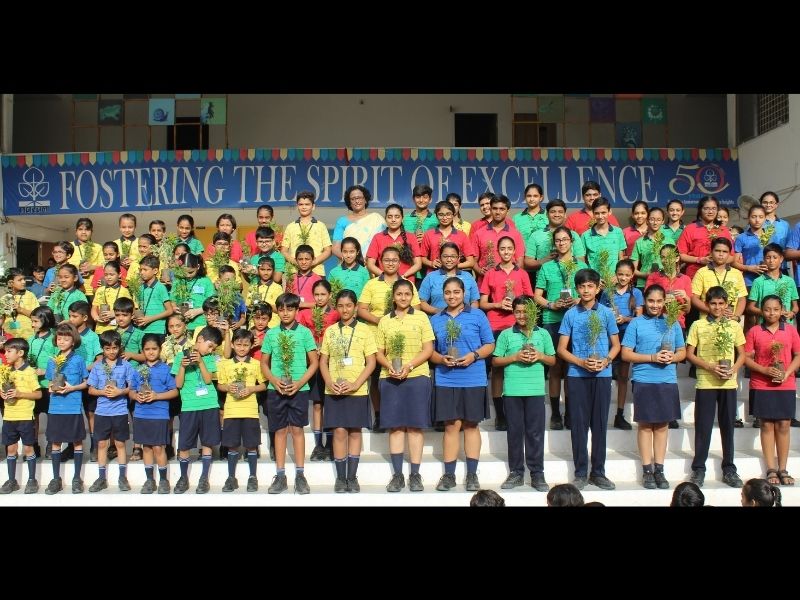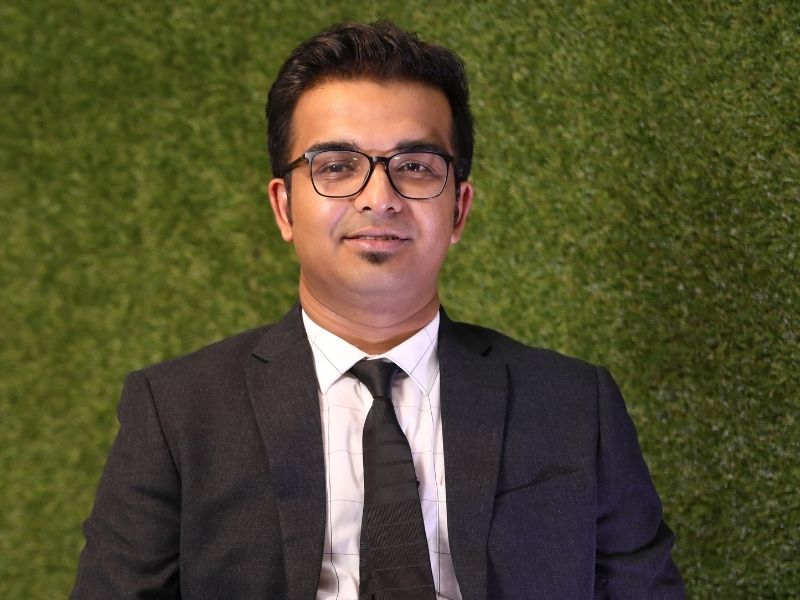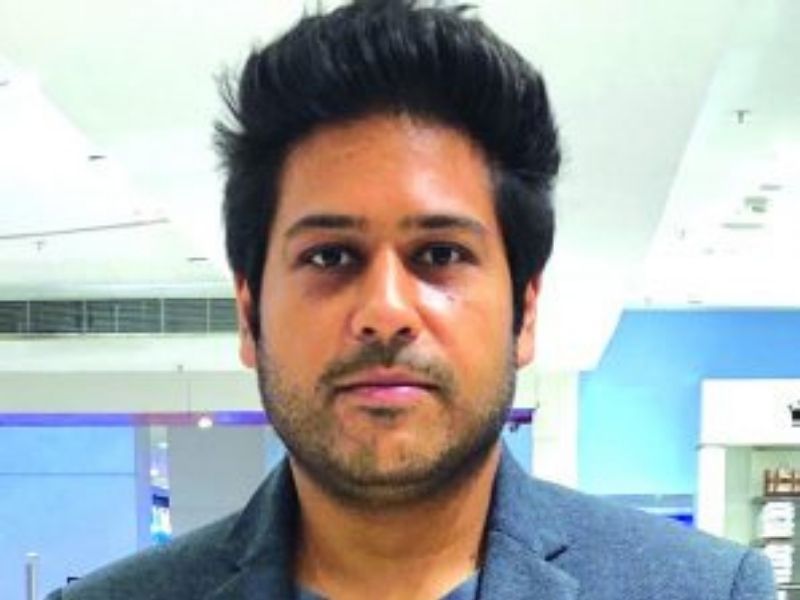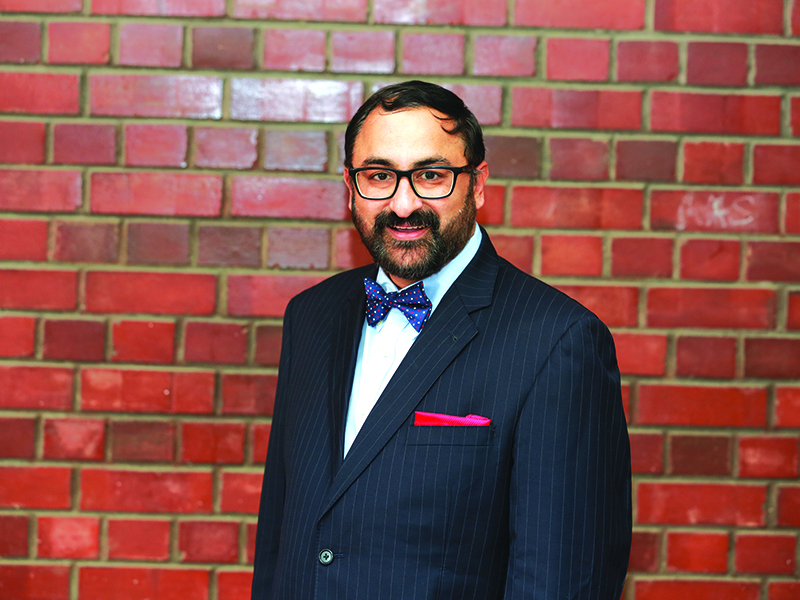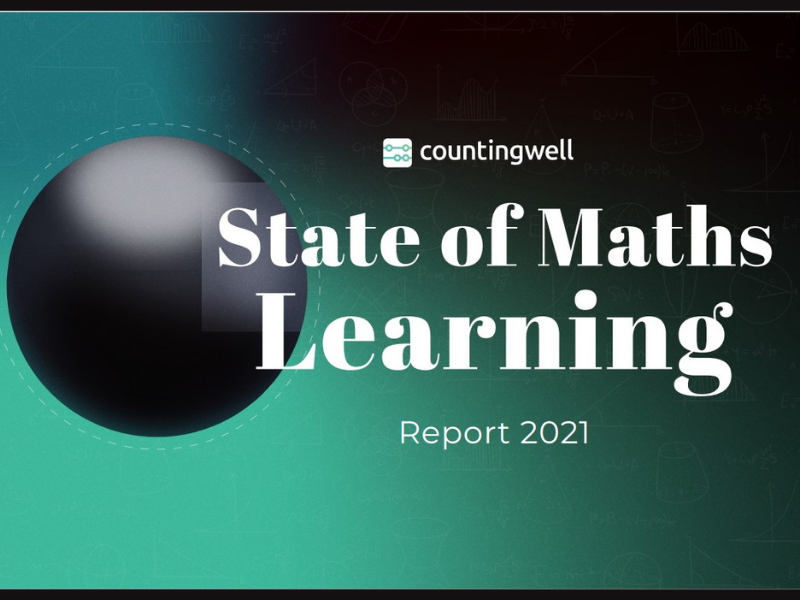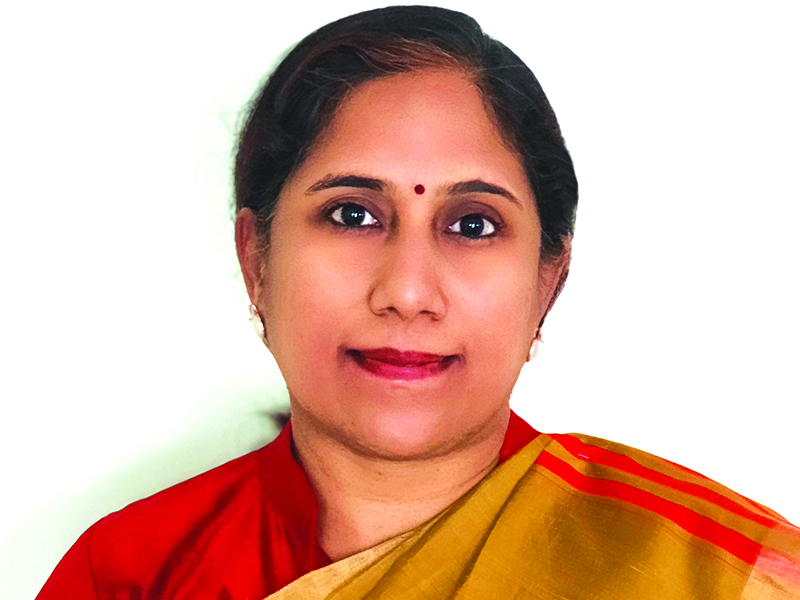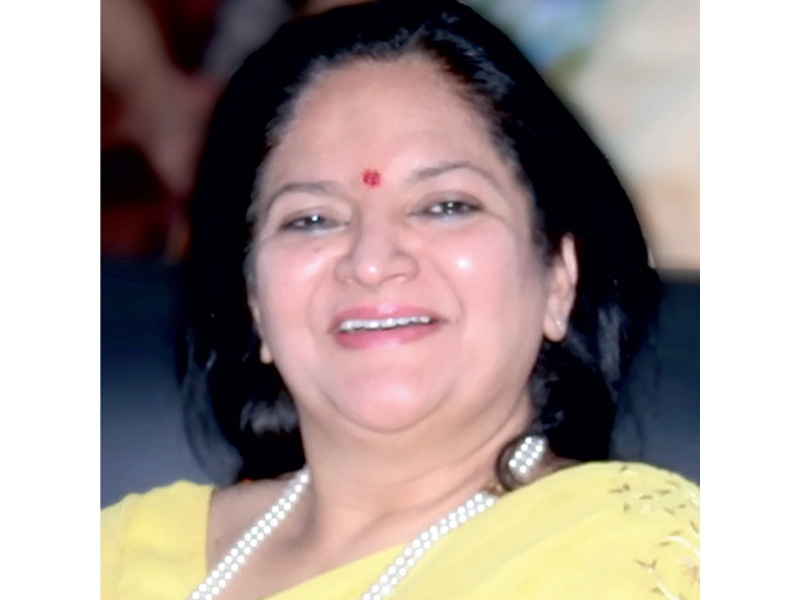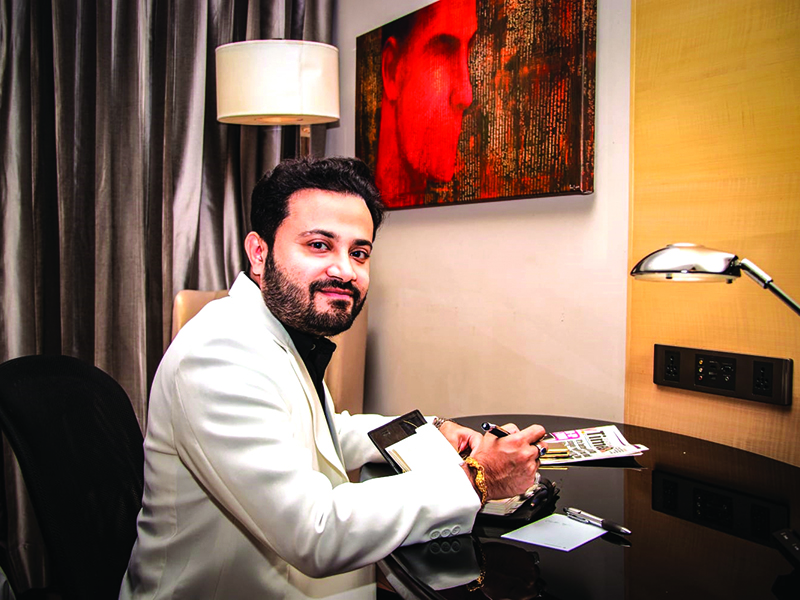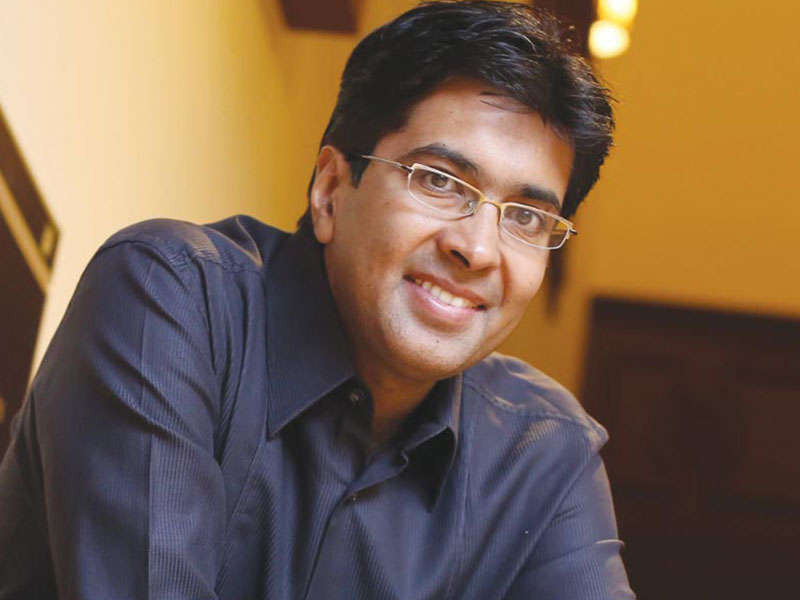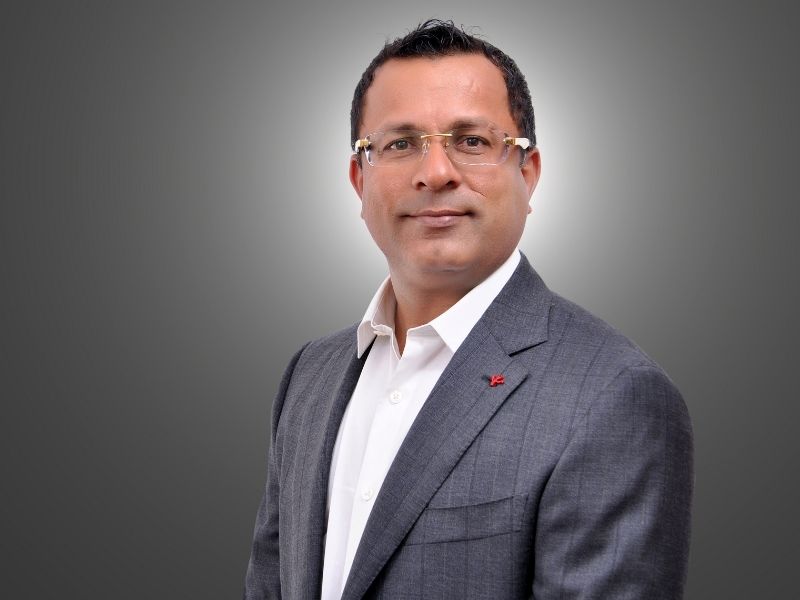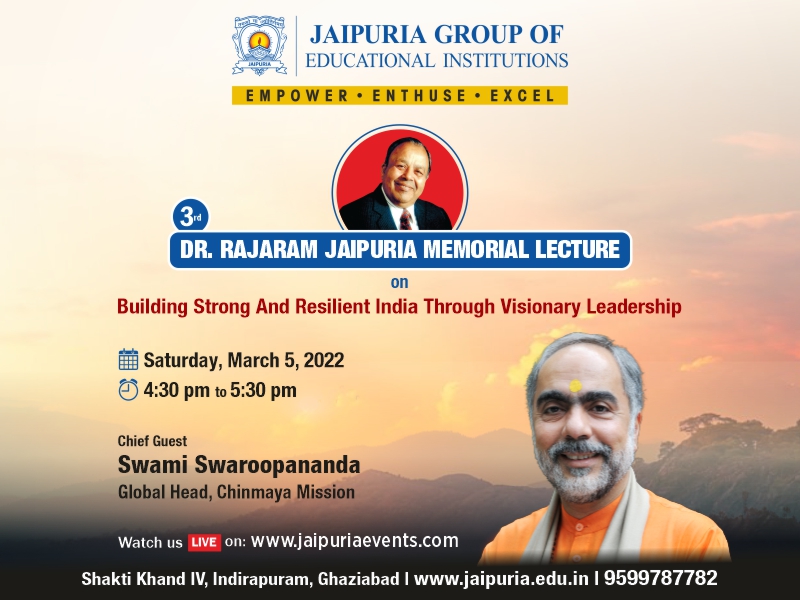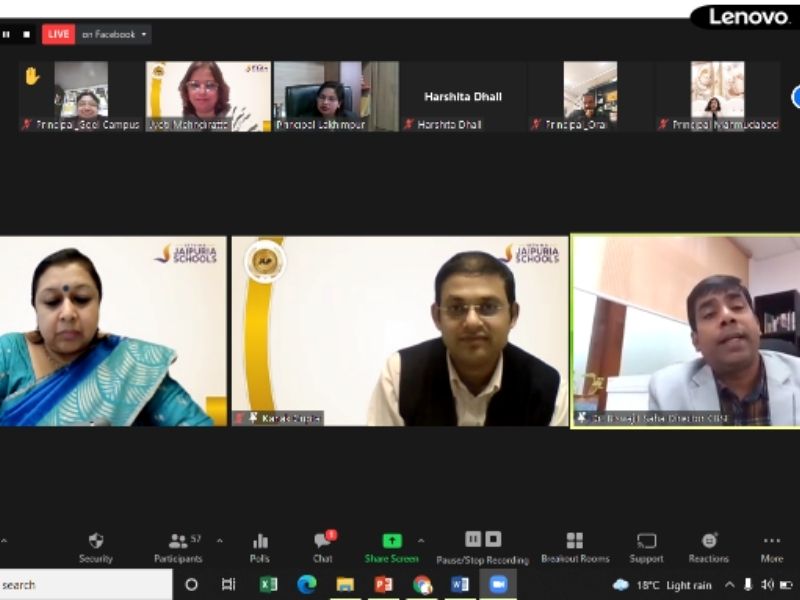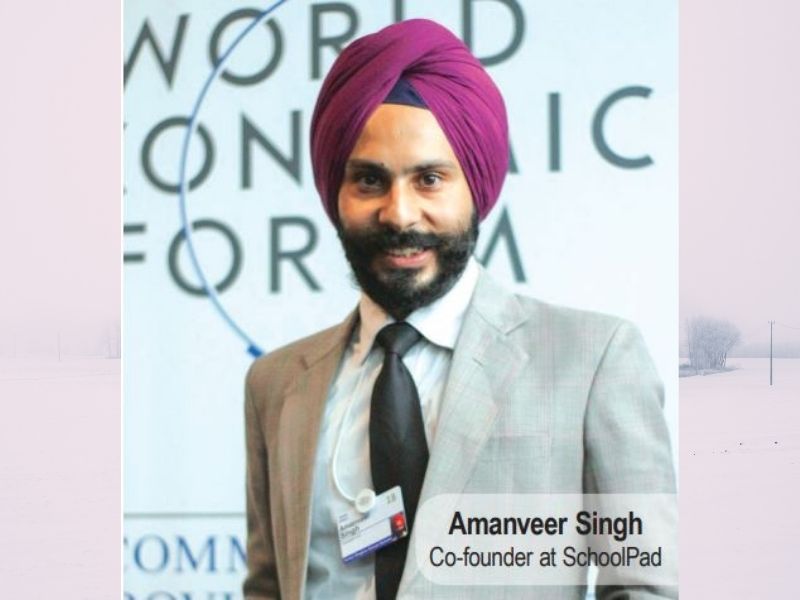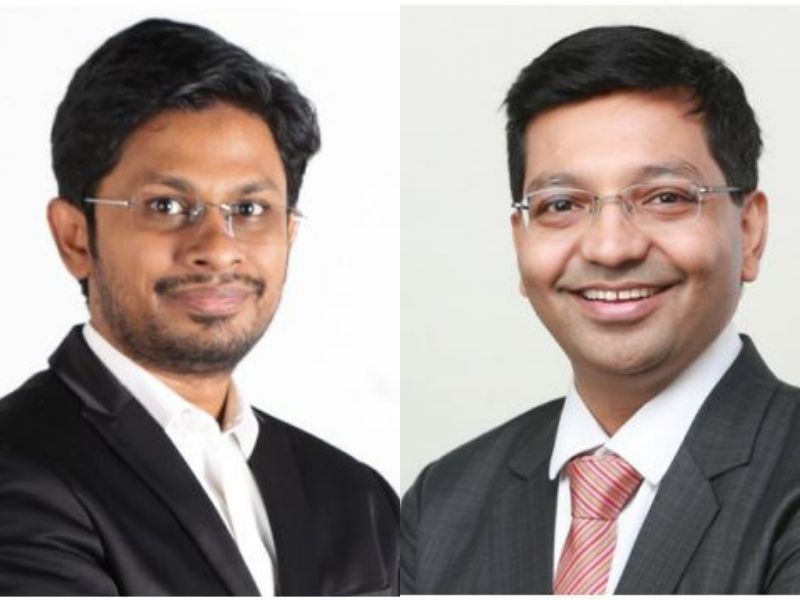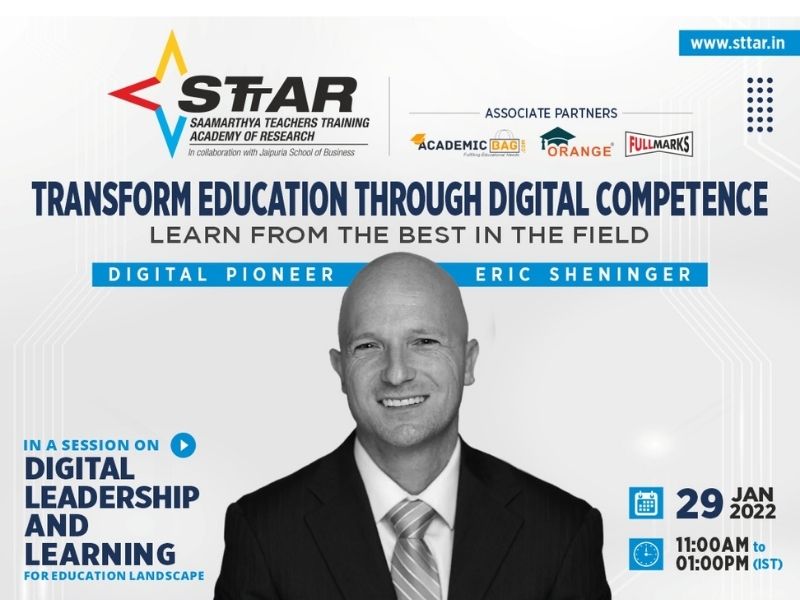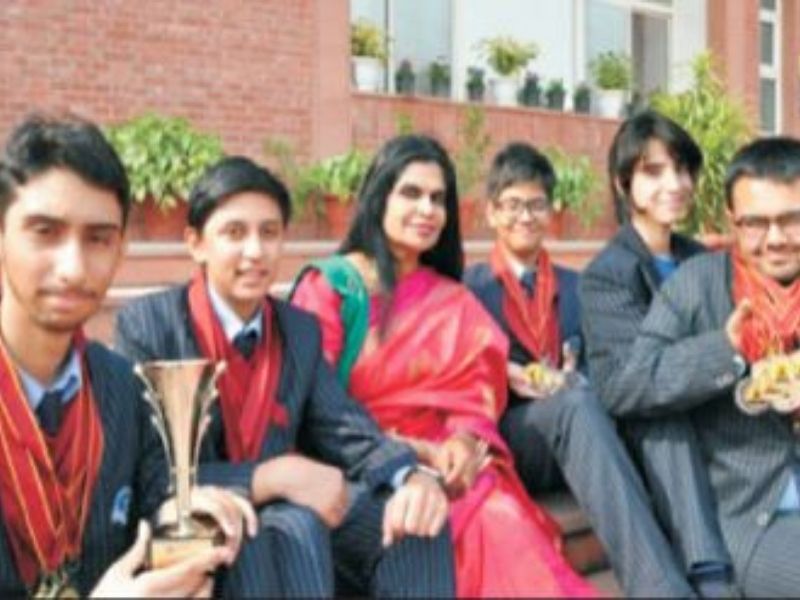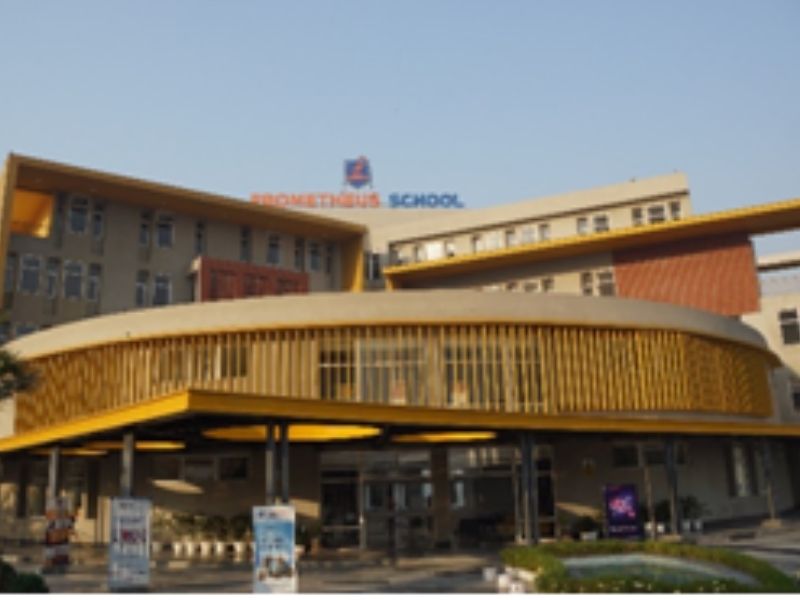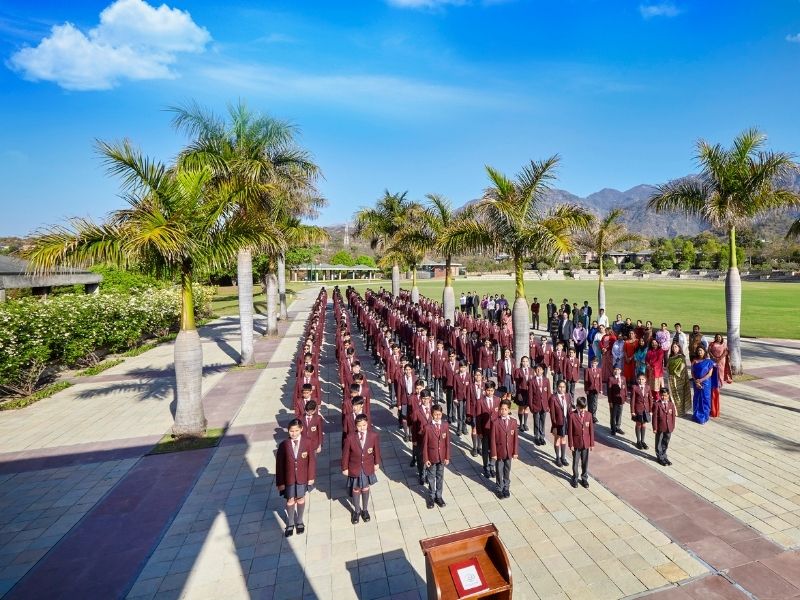Spotlight Feature
Going beyond academic excellence: Seth Anandram Jaipuria School, Ghaziabad delivers new-age learning experience
Teaching the mind, nurturing the body, enriching the heart
Education in the 21st century is on an upward curve of evolution. While academic excellence still remains its centerpiece, some schools are blazing a new trail by developing a curriculum and incorporating pedagogical practices that nurture the wholesome development of learners.
Gone are the days of didactic teaching […]
Leveraging new-age teaching-learning practices to unleash student creativity
Swoyan Satyendu, COO, ODM Educational Group
What is the purpose of education? Some may state it’s the cultivation of character to live in a civilised society. Many take it as necessary for their child’s development, and for others, it’s the path to success; different factors contribute to defining the purpose of education.
Undeniably, parents are still […]
Do You Really Need School Management Software?
– Abhiraj Malhotra, Co-founder, SchoolPad
The past few years have been a giant techno-bubble where virtually every problem, every pain point has an answer in technology. The education space is no different. It has witnessed a giant boom in edtech ventures, each offering its own technology-based solutions for problems faced by school managements.
School owners may have […]
Enigmatic Magic of Behavioural Finance
– Prof. Ram B. Ramachandran, Professor of Practice and Vice Dean O.P. Jindal Global University Mysteries of our brain have puzzled human beings for centuries. Neuroscientists and psychologists are still trying to figure out how 86 billion neurons and 100 trillion synapses work in tandem to compute, comprehend and rationalize. Our thoughts, emotions and memories are controlled by the enigmatic 3-pound brain. We make decisions in life sometimes based on empirical evidence and also based on our emotions and biases. We tend to magically create mental short cuts based on conscious and sub-conscious influences. It is specifically pronounced in financial decision making. Financial markets are characterised by volatility, with prices moving in cycles of peaks and troughs. Lately, liquidity fuelled booms and busts have become common occurrences. In light of this, the assumptions of ‘Rationality’ and ‘Efficient Markets’ have been in dispute, but now it is widely acknowledged that much of this market volatility has its source in human behaviour and its quirks rather than fundamentals or quantitative factors. After all, what constitutes ‘markets’ if not their very human participants who make them up, technical trading strategies and algorithmic trading notwithstanding? Analysing Emotions It is becoming increasingly necessary to understand, analyse, and build strategies around human emotions to the extent they move financial decisions and markets. This is where Behavioural Finance comes in. The broader aim of Behavioural Finance is to narrow the gap between the theory of rational investor decisions and their actual behavioural abilities when it comes to making investment decisions. The formal study of Behavioural Finance helps to equip us with knowledge about the principles of psychology of decision-making under conditions of risk and uncertainty. This specialised knowledge can then be deployed to formulate practical applications for managing assets and constructing portfolios. The knowledge is specialised since it combines two domains that are not just technical (psychology/human behaviour and finance) but also as different as chalk and cheese! Thankfully, this niche field has received attention from serious academics from finance, economics and psychology. Individual and Professional Investment As Individual investors ‘suffer’ from behavioural biases, can they turn to professional investors? Well, professionals suffer from similar biases that afflict individuals. In fact, their biases many a time results in overconfidence, familiarity bias and disposition effect. Past performance is no guarantee for future results. Many investors and the markets rely on and follow ‘hot’ fund managers. The ‘hot-hand’ fallacy creates a self-fulfilling prophecy, which can then lead to wild swings when the fund manager goes ‘cold’. The current craze with cryptocurrency and Non-Fungible Assets (NFTs) are partially driven by crowd mentality. Can the wild swings in these new investment vehicles be better predicted and managed? The need for Behavioural Finance The need for such specialised knowledge is becoming obvious given how much finance and economics have gained from insights about psychological processes. Five Nobel Prizes in Economics have been awarded for path-breaking work on cognition, nudge theory, market behaviour and decision making, which now offers a deeper understanding of…
Countingwell’s State of Math Learning report 2021
Countingwell — a supplementary math learning app/online platform owned by Illuminati Learning Solutions Pvt. Ltd — released its State of Math Learning Report 2021 in early January highlighting the decline in math learning skills and outcomes of middle school children countrywide. The report analysed data of 75,000 class VI-VIII students from the learning cycles, assessments and tests taken on the Countingwell Maths learning digital app over the pandemic year 2021. The key findings of the nationwide report are: • Poor word problem comprehension i.e, lack of English language skills is a major contributor to low math learning outcomes. • One in five students lack basic calculation skills learnt in previous classes. • One of ten class VIII students is lagging behind in math skills because they have not mastered concepts that they should have learned in previous classes. This learning gap increases as students move to higher classes. • Students witness a drastic drop in math scores from class VII onwards as they begin solving more complex problems that require application of multiple concepts. • Students from tier II and III cities such as Varanasi, Madurai, Indore, Jabalpur, Vapi, Nashik and Bharuch performed on a par with peers in metro cities like Mumbai, Delhi and Bengaluru. • Male students fare better in math learning outcomes than girls, but the gap is marginal. The widest gender gap is in comprehension. While it was already quite low for both genders, boys did better than girls • Weakest comprehension is in math concepts such as fractions, ratio and proportion, algebra, and decimals. “The objective of the report is to understand, analyse and highlight the maths skills of middle-school children. We chose middle school as this is the stage during which math content becomes progressively complex and students begin to lose interest in the subject. Our goal was to understand the factors that influence maths learning and interest levels of middle school students. Our study found that poor understanding of concepts, reduced parental involvement in monitoring math learning at home, and increase in difficulty levels were some of the reasons attributed to the drastic drop in math scores in class VII students,” says Nirmal Shah, a chemistry alum of Madras University whose entrepreneurial journey began 24 years ago (Advanced Technology Labs, Chennai TESCRA, Bengaluru, Trade2Gain, Delhi), and co-founder of Countingwell. Prompted by the struggles of their own children in learning math in school, Nirmal Shah and Ravi Jitani, a commerce and business management alumnus of Delhi University and INSEAD with over two decades of rich working experience (Fujitsu Consulting, Aureos Capital etc) co-promoted Countingwell in 2018. Headquartered in Bengaluru, Countingwell’s fully remote teams operate from New Delhi to Jaipur in the north to Salem and Honnavar in the south. The company offers well-researched and specially designed app-based math learning study programmes mapped to the prescribed middle school (class VI-VIII) syllabus; a blended learning programme for schools and teachers, and career guidance and counseling programmes in careers of the future. Countingwell’s team of curriculum developers…
Shaping young entrepreneurs
–Anjana Subramanyam, ISC coordinator (Academics and Admissions), Gitanjali Schools, Hyderabad
Abraham Lincoln had rightly said: “The best way to predict your future, is to create it.” Well then, is creating all that simple? Can any one of us become an entrepreneur?
Creation is the power of thought that is strongly reinforced by positive actions, helping us manifest […]
Women All The Way
–Dr. Amita Chauhan, Chairperson, Amity Group of Schools Women need to be cherished and celebrated every day, and even more so those who shine the light of education upon us while we must acknowledge, on a daily basis, the significant role women play in every aspect of life, it is essential to reiterate their importance on some special occasions. International Women’s Day is, therefore, an apt moment to celebrate various acts of courage, perseverance and determination exemplified by ordinary women, who play extraordinary roles in shaping the present and future generations of their societies and countries. We have all been witness to how, during the ongoing pandemic, women have stood resolutely at the frontline as healthcare workers, innovators, teachers and administrators, balancing all this with their responsibilities as caregivers and homemakers. Amongst all these equally relevant roles, I believe that the most important role a woman plays is that of a teacher. Naturally so, as the first life lesson we learn is always at home, and always through our mother’s knowledge and wisdom. The extraordinary role of a mother as a teacher starts right from when a child is born. She always leads by example, whether it is for inculcating qualities of discipline and hard work, or about imparting moral values of respect for others and compassion for the needy. She is the one who teaches us how to share – first with our siblings and then with our friends – and care. As children begin their school life, they move seamlessly from the loving arms of their mother to that of a teacher, and in majority of cases, it is usually a woman. As per a recent survey of the Education Department, more than 80% of all teachers in kindergarten through high school are women. Evidence also suggests that women teachers are better equipped to understand a child’s emotional and mental needs. They impart a sense of security to children who have just stepped out of the comfort zone of their homes. Through my vast years of experience as an educator, I can safely claim that women prove to be great counsellors as teachers, as they are born with an innate empathy, high emotional quotient and an unending capacity to nurture. These qualities that women are endowed with naturally also find mention in our ancient texts. (Yajur Veda 20. 85). This means that a scholarly woman inspires us towards knowledge and promotes a noble conduct. Another great exposition according to Markandeya Purana (Devimahñtmyam 2.13), says that a woman is born out of the incomparable radiance emerging from all Gods, so it is only natural for her to be all powerful and wise. Truly, we have innumerable instances of women who have turned the tide of time, despite all odds. To name just a few, we all know of Savitri Bai Phule, educator and reformer who played a vital role in revolutionising women’s rights in India, or of Helen Keller, who never surrendered to her disability, and instead rose to…
“Education is the soul of society passed down the generations”
A business management alumnus of Narsee Monjee Institute of Management Studies, Mumbai who pressed on to study for a PhD from the International University of America, London. Dr. Chandan Agarwal is chairperson of GD Goenka Public School, Kanpur. What is the objective behind the promotion of GD Goenka School, Kanpur? Education is the soul of a society passed down from one generation to another. With innumerable players in this arena, it becomes important for schools to build a formidable reputation in society, and enjoy the support and loyalty of its parents, students’ and teaching communities. A positive image helps attract and retain skilled and experienced faculty and also influences students’ achievements. To create and sustain a popular image, it is significant to ‘live the brand’ and reinforce positive reputation through various platforms such as websites, newsletters, participation in community welfare programs etc. What are the distinguishing features of your school? Our school provides a learning environment that focuses on and augments the evolution of 21st century skills- — critical thinking, communication, collaboration and creativity. We believe that every child is unique and blessed with inherent capabilities. Therefore, our endeavour is to provide appropriate developmental programmes with not more than 25 students in a class. The ambience inculcates a lifelong love for learning. A futuristic approach to learning based on experiential and child-centric pedagogies has been our forte from inception. What initiatives did your school take over the past two pandemic years to ensure that every child continues to receive holistic education? The disillusionment regarding the seriousness and objectivity of online education did not shake our determination to provide quality education. We adopted a progressive approach and during the initial stages of the pandemic, charted a strategy to implement multidimensional teaching pedagogies, using different mediums of communication to reach out to all our students. To ensure the physical and mental well-being of our students and parents, frequent motivational and counseling sessions by iconic personalities from different walks of life were also organised What are your school’s future plans? The need of the hour is to provide students with enriching experiences which will reinforce their learning and expose them to various opportunities of self- growth. The NEP 2020 has also been designed to nurture skill-based learning and focus on socio-emotional, intellectual and physical needs of students. In the future, we intend to focus on experiential learning, personalised attention, and gradual implementation of NEP 2020. What are your suggestions to revive Indian education post pandemic? Reopen schools now!. The past several months of schools’ lockdown has taken a severe toll on children’s social and emotional well-being resulting in enormous learning loss. We must restore their confidence and enable them to recover lost learning, identify new and innovative strategies to sustain through changing times and prepare students for the future. Let us not forget “Education is the passport to the future, for tomorrow belongs to those who prepare for it today”.
An educators Almanac to building resilience and managing crisis
– Saurabh Modi, Founder-Chairman, Neerja Modi School, Jaipur
Education is the cornerstone for development and growth, for an individual and society at large. It’s an equalizer and the most effective tool to build a more inclusive and diverse world. Education sector has consistently evolved through generations and is continues to do so – staying relevant […]
“Busy is the New Stupid” – Warren Buffet
-Mukesh Sharma, Director, Prometheus School, Noida Contemporarily, we are predisposed to equate busy with success. Being busy translates to arduous work, denotes importance and is directly proportional to triumphs. However, when two of the world’s most prominent and successful people, Warren Buffet and Bill Gates concluded that busy is the new stupid in their discussion, it paved way for reflection. Despite its glorified notions, being busy tends to have an adverse effect. It makes us hurried, results in short-sightedness, expands blind spots exponentially and results in missed opportunities. Often, in order to see children succeed and help them discover their talents, they are thrown into a state of constant overwork. Planning one thing after another, their timetables resemble that of an optimized train schedule. However, this brings into question whether this busyness is truly a measure of how well they will do in life. At Prometheus, our learning pedagogy encourages students to explore and discover the world around them as they deem fit. They indulge in experiential learning which allows sensory cognitive development. This is what we believe should be the crux of motivation. The children should be left to wander, experience and explore their world on their own. They should not be bound by time limits because evidently, time is the most important commodity one has. Hence it should be valued highest instead of filling it with activities to keep one busy. When we continue to live and encourage children to live in this busy state, they are bound to grow up and ask, “where did all the time go?” The essence lies in slowing down and allowing the brain to grasp concepts organically thus resulting in a more positive and productive learning outcome. As Jamie Smart said, “If being hard on yourself was going to work, it would have worked by now.” The myth of busyness makes one lose sight of what matters in life. It drowns the more natural processes like trusting your instincts and intrinsic wisdom which is a crucial developmental step, especially for children. Thus, being busy is only the illusion of progress, not progress itself. Also read: Prometheus School, Noida joins the IB continuum club
Dr Rajaram Jaipuria Memorial Lecture By Swami Swaroopananda
The third Dr. Rajaram Jaipuria Memorial Lecture, to be held virtually on March 5, 2022, promises inspiring insights into a very pertinent topic: Building Strong And Resilient India Through Visionary Leadership. The lecture will be delivered by the event’s chief guest, Swami Swaroopananda, Global Head of Chinmaya Mission. An initiative started in 2019 by Seth Anandram Jaipuria Group of Educational Institutions, the lecture is an annual event to highlight the issues of national significance through addresses by eminent personalities who have left an indelible mark in shaping the path of India’s progress into the 21st century. The 1st Dr. Rajaram Jaipuria Memorial Lecture, held on April 30, 2019 in New Delhi, was delivered by Venkaiah Naidu, the Hon’ble Vice President of India. Its topic was: Education, Entrepreneurship & Ethics. The 2nd lecture, held in the virtual mode on December 5, 2020, was delivered by Nitin Gadkari, Minister for Road Transport & Highways, Minister of Shipping and the MSME, Govt of India. Its topic was very apt for the country that was overcoming the Covid pandemic: Role of Leadership In Turbulent Times. About choosing the topic for the 3rd Dr. Rajaram Jaipuria Memorial Lecture, Shishir Jaipuria, Chairman of Seth Anandram Jaipuria Group of Educational Institutions, says, “We wanted to choose a topic that would be relevant to the present times and also resonate with the youth of India. We also wanted to choose an eminent personality who could connect with masses and convey a message that’s inspiring, progressive and visionary at the same time.” The topic of the 3rd Memorial Lecture, Building Strong And Resilient India Through Visionary Leadership, is especially pertinent in the context of India’s potential as an emerging superpower and becoming the Vishwa Guru in education. The session will be held on Saturday, March 5 between 4.30 PM to 5.30 PM, on the virtual platform www.jaipuriaevents.com. Swami Swaroopananda will be the event’s chief guest and will also deliver the lecture. Chinmaya Mission is dedicated to spreading the universal wisdom of Vedanta and teaching the practical means of personal transformation to individuals from any background As its Global Head, Swami Swaroopananda is an exemplary spiritual leader who is taking forward the legacy of his guru Swami Chinmayananda. He is also the Chancellor of Chinmaya University and Chair of Chinmaya International Residential School, one of India’s most respected boarding schools. Dr. Rajaram Jaipuria Memorial Lecture has been instituted in the memory of the late Dr. Rajaram Jaipuria, a noted philanthropist, industrialist and educationist who has been instrumental in building the 76-year-old legacy of Seth Anandram Jaipuria Group of Educational Institutions. The group is presently a conglomerate of 14 K-12 Schools, 5 Preschools, 2 management institutes and a teachers training academy. The 3rd Dr. Rajaram Jaipuria Memorial Lecture is likely to be attended by 10,000 people. All are invited to attend it at www.jaipuriaevents.com
Paradise Gained… The Artist Village DPS Mihan
As I walked towards the Artist Village within the campus of DPS, Mihan, standing sentinel at its entrance was the Tree of Life, conceptualised by renowned Chhattisgarh artist Sushil Sakhuja. Gazing at it spellbound, I wondered if this was the fabled kalpavriksha … the wish-fulfilling tree. Was I in paradise? I realised then that I […]
Tiny Problems of Tiny People
What is HealthStart junior ?
Healthstart junior is a health and wellness provider with a special focus on children’s physical, mental and nutritional needs.
What medical problems can HealthStart junior manage?
HealthStart junior can manage all issues related to food , gut and weight Food allergies, intolerances and sensitivities, digestive issues like IBS, constipation, IBD. We […]
Interdisciplinary Psychology Education in India: Opportunities and Challenges
There is growing awareness about the adverse impact of prolonged schools’ closure caused by the raging Coronavirus pandemic on the lives of students worldwide. International and national research findings indicate that learning loss apart, students have suffered mental and physical health issues as well. The need to reimagine Indian education has never been more critical now given the country’s unpreparedness for a digital learning environment coupled with poverty and poor Internet penetration. The time has come for crisis recovery mode to enable improvements in assessment, pedagogy, technology, financing, and parental involvement. The Seth M.R. Jaipuria Group of schools that runs and manages 43 K-12 schools – with an aggregrate enrolment of 30,000 students instructed by 2,200 faculty — has a presence in 36 cities. Driven by our motto to nurture future-ready students equipped with 21st century skills, we organised the 7th Jaipuria Leadership Programme in December 2021 — attended by 38 school heads — and deliberated and addressed a range of issues from school culture, setting high standards for teacher performance, increased academic expectations for all students and community engagement. During the course of the three-day event, the following points came up and we are happy to share the same with the larger educational fraternity with the hope that collectively, we will do better. Build back better: Make your school the ‘school of choice’ Addressing the impact and uncertainty of the pandemic era, the need to foster students’ cognitive development as much as their social, emotional and spiritual development emerged as a strong requirement. The school of choice must also focus on bringing all stakeholders together with a common interest to improve children’s lives. Addressing the gathering, the chief guest Dr. Biswajit Saha, Director (Training & Skill Education), CBSE, spoke about the importance of transforming students into confident, independent learners and guiding them on their career path. He also emphasised the importance of skill development and urged schools to adopt a data-centric approach for better administration. Redefine components of quality education Continuing from where Dr. Saha left off, the group’s vice chairperson Mr. Shreevats Jaipuria urged school leaders to focus on continuous learning, value inculcation, meeting aspirations of society, according equal importance to co-curricular activities, and lifelong learning as the vital components of quality education. Incidentally, all Seth M.R. Jaipuria Schools are deeply rooted in the values of Sustainability, Possibility, Integrity, Collaboration, and Empathy — SPICE in short! Values followed at Seth M.R. Jaipuria Group of Schools Need to redefine assessments Addressing the school heads, Professor Dr S. Garimella stressed on the objective of assessment – not to judge but enhance quality of education. Authentic assessments don’t focus only on cognitive understanding but foster the affective and emotional well-being of children. It perfectly synced with Dr. Saha’s address on differentiated assessments. Plan early and plan well Chinese philosopher Confucius famously said: “A man who does not plan long ahead will find trouble at his door”. Mr Kanak Gupta, the Director of Seth M.R. Jaipuria Schools, emphasised the need for…
Interdisciplinary Psychology Education in India: Opportunities and Challenges
Across the world, psychology is consistently ranked as one of the top fields of undergraduate study. As an academic discipline, psychology provides insight into why people think, feel, and act the way they do. The discipline is unique as it covers virtually every facet of human life, including one’s education, occupation, and relationships. Over the past few decades, India has seen an upsurge of demand for the subject, with over 1,100 universities and colleges currently offering psychology courses. Its growing popularity can be attributed to the strong knowledge base and critical thinking skills acquired by students, coupled with excellent employability prospects across a wide range of careers and industries. An interdisciplinary approach is essential in the education and training of psychology students, providing relevant information related to disciplines such as medicine, economics, and philosophy. Crossing disciplinary boundaries encourages students to examine problems from different perspectives and helps them integrate learning across subjects. Beyond knowledge acquisition, a 2017 report by the American Psychological Association, reveals that students who earn a psychology degree acquire many versatile workplace-ready skills including analytical thinking, effective communication, data analysis, ethical decision making, creativity, and empathy. Studying psychology is advantageous for aspiring sociologists, lawyers, businesspersons and other professionals keen on understanding the vagaries of human behaviour. While the Covid-19 pandemic has caused worldwide disruptions, it has also underscored the vital importance of psychology as a field of study and practice. This is especially true in India where, even before the current crisis, a 2017 Lancet study estimated that one in seven Indians suffer from some form of mental distress or illness. The ability to effectively assist such individuals has been hampered for many reasons, including lack of access to mental healthcare services. Indeed, the number of psychologists in India is significantly lower than the number recommended by the World Health Organization. Clearly, there’s an urgent need to educate and recruit a larger number of clinical and counseling psychologists. While important, focusing solely on the diagnosis and treatment of mental illness presents a narrow view of the career opportunities for psychology graduates. There is immense scope for graduates to engage in research, including how mental processes and behaviour change over-development or the biological underpinnings of psychological phenomena. Such findings add to the ever-evolving body of knowledge that informs psychological principles and practices. The latter, in turn, can be applied to the broader world, such as the education system, criminal justice system, government, business, and industry. In this way, applied psychology provides the understanding and expertise to solve diverse problems related to human experiences. While the future of psychological education and practice in India looks bright, several challenges remain. One major concern relates to the gender imbalance of students signing up for psychology study programmes. The 2018 Cambridge International Global Education Census revealed that only 8.8 percent of Indian boys aspired to become psychologists. Psychology is too often perceived as appropriate for daughters only based on various socio-cultural and economic concerns. In many parts of contemporary India’s lower income…
3 Steps to Streamline School Examination Processes and Systems
In my eight years with SchoolPad, I have had the opportunity to work closely with hundreds of reputed schools across India in managing their report cards and results. From setting up examination structures for different grades and boards to making entries of marks and generating report cards, it has been an exciting journey full of new learnings. Over the years, this valuable experience has helped our SchoolPad team to develop its examination platform and take it to the next level. Today, we are easily managing to generate thousands of report cards every year of our over 200 school partners. It’s noteworthy that SchoolPad is not merely a software platform but an entire set of systems and processes designed to empower teachers to streamline examination processes and enable timely results generation and report cards delivery with the least errors. In this article, I have consolidated all these learnings into 3 simple steps, which, if followed consciously, will help boost the entire experience. 1.Pre-Planning: This is by far the most crucial step that will help lay the foundation for delivering timely and error-free results to parents. Before the commencement of every examination, hold a quick meeting with all the coordinators and members of your examination cell while also making notes of: When do teachers start checking the papers? By when should marks be entered into the software or Excel file? When will the analysis be conducted? When will teachers check the soft copies of the results? When will they be shared with parents? Circulating this data among teachers will keep everyone on track, thus minimising delays. Our teams force this process by sharing a report card sample with schools and filling it with dummy marks a week or two in advance. This simulates the entire process and gets the thought processes running so the changes and the plan are in place, well in time. 2.Monitoring: Once teachers begin their evaluation process, a practice that we have implemented in schools is keeping a continuous check on the marks-entry process which ensures that teachers are filling in the marks and associated details like attendance, remarks, etc., in a timely manner and as per plan. Even if you don’t have a system to help you with such reports, you can assign the task to your coordinators who can continuously follow up with their teachers and keep ticking the checklist of their classes and subjects, as and when they get a confirmation from their teachers. The importance of this step is to ensure that the responsibilities to monitor the marks-entry process are clearly defined to achieve the desired results. 3.Pre-Checking: Once the coordinators and teachers are aligned with the plan and complete their marks-entry process in time, you are left with one final step to ensure that your efforts don’t go waste and you ultimately achieve the goal of generating and delivering results and report cards on time and with least errors. This step has emerged as one of the most powerful steps especially during the…
Huge potential for online schooling
Santosh Kumar, Co-founder & CEO and Yeshwanth Raj Parasmal, Co-founder & Director share the aims and objectives of 21K School, India’s #1 online school. What is the future of online learning and what opportunities do you see in the Indian market for 21K School to evolve? The concept of online school is relatively new. India is a very large market especially in the K-12 space — the second largest worldwide. We are aware that online schools cannot fully replace physical schools but there is growing need for schools that offer personalised, flexible learning. Especially for students in small town India with limited access to quality teachers. We have discerned a large number of students whose parents need to frequently move cities because of job requirements. Such students can easily sign up for online schooling. Apart from being a safe environment from the perspective of corporal punishment and bullying experiences of physical schools, we believe online schooling is a more convenient option for students with physical disabilities as well. Moreover, we understand a large number of parents residing in metro cities are concerned about high cost of education. With online schooling, that cost comes down drastically. For e.g., our average fees for the Indian curriculum is Rs. 40,000 only which is half the cost of uniforms and transport alone. So, it’s a huge advantage in terms of quality of education, accessibility, transparency, convenience and the flexibility it brings in. We believe online schooling is here to stay in India and worldwide. What curriculum do you follow in 21K School? We follow a curriculum aligned with the national curriculum framework that all schools in India are mandated to follow. Moreover, we are also a centre for Pearson Edexcel curriculum. We offer the British curriculum under the Edexcel programme, and the American High School Diploma accredited by Cognia, USA. through our partner Stride Learning, What is the unique feature of your school? Ours is a technologically-driven new age school. Children easily log into class from home without undergoing the stress of an average five-hour daily commute to and from school. Online school allows children free time to pursue their passion be it coding, sport, art, dance or music. In effect, online schooling has dismantled the factory model of school education. Secondly, online schooling is defined by transparency and a data-driven approach. New age technologies usage enables teachers to better assess students’ learning outcomes in real time. Students’ performance is tracked on a regular basis to ensure every child in 21K School crosses the minimum learning levels and can continue to learn and grow. We use AI for providing differentiated learning paths for each student based on the child’s academic progress. Learning nuggets are generated to ensure that the child is challenged and constantly growing in his understanding of each concept ensuring flexibility and personalisation of lesson plans. We also have an extensive digital library with 800 plus titles and a VR lab for interactive learning practicals for science classes. Last but not the…
Motivating students to learn and succeed in the 21st century
– Saurabh Modi, Founder-Chairman, Neerja Modi School, Jaipur As educators, we want children in our classrooms to be happy, of course. But, how do we rationalise that their contentment truly matters when it comes to learning and absorbing the knowledge being imparted? According to a new study by HGSE lecturer Christina Hinton, the answer to my question is well-defined: It matters tremendously. As Hillary Clinton has rightly said, “It takes a village to raise a child”, we constantly go beyond the office or classrooms to engage every child in her/his development and progress. The friendly staff at the gate, a smiling bus driver or a compassionate lunchroom faculty member play an enormous role in how students feel about their presence in the school. Plutarch said that “The mind is not a vessel to be filled but a fire to be ignited”, and although what motivates each one of us to accept what we fill our minds with to achieve our dreams is different for each one of us, the underlying reasons are quite alike. We can reasonably debate that extrinsic motivations like grades, standardised tests, and financial rewards are purely provisional enticements that cannot deliver a sustainable structure for quality learning and careers. I also agree that student learning and performance especially in the current world of online learning will forever remain a challenge. How has the proliferation of online lessons altered the psyche of students or de-humanised the learning experience? Therefore, the pertinent question that surfaces is that as educators how do we motivate and engage our future world citizens to develop the willpower and determination to learn and succeed? Alumni engagement is vital At NMS, we understand how building significant association with students and alumni is central to the strategic growth and advancement of higher education programmes. Though alumni typically move away from campus to pursue a career, we ensure, through various programmes, that they stay in touch and build a global professional network. Presently, NMS students greatly benefit from mentorship from engaged alumni. Nothing inspires former students to stay plugged in with their alma mater and students like the prospect to build carmaraderie with other alumni. We have all grappled with a dearth of social interaction during the pandemic, and virtual community-building events are the perfect therapy for this situation. As we continue to discover new digital solutions to advance support to students who are learning remotely, as business leaders and educators, we have an opportunity to employ technology to shape engaging experiences and maintain a student-institution relationship across the student lifecycle and beyond graduation. Bringing peer mentoring into the larger picture Mentoring programmes have time and again established themselves as an important part of students’ lives. The role of a mentor is unparalleled and mentored students possess better attitudes towards their schools and teachers, build strong interpersonal skills for life, and most importantly have better attendance. This is precisely why, at NMS, we prioritise the need for peer mentoring systems. We all struggle with insecurities and…
Accelerating Digital Transformation In Education
Learn From Digital Pioneer Eric Sheninger in STTAR Session – Vinod Malhotra, Chairman, Academic Council, Saamarthya Teachers Training Academy of Research (STTAR), Ghaziabad The inexorable power of digital technology is transforming our world and our lives for the better. In the education landscape, particularly, rapid digitalization of pedagogy, learning processes, and operations is empowering teachers and preparing learners with competencies to thrive in a dynamic, digitally-connected world. Educators today need the right set of digital resources and the correct methodology and effective approach to develop digital leadership skills. This methodology and approach are not easy to come by. Experts have modelled and tested strategies that yield desired results and refined them for ready implementation in the education ecosystem. One of these educator-turned-digital pioneers is Eric Sheninger, author of the bestselling book, Digital Leadership: Changing Paradigms For Changing Times. To tap into the expertise of Eric Sheninger, Saamarthya Teachers Training Academy of Research (STTAR), Ghaziabad, is conducting a special training programme in a virtual session on DIGITAL LEADERSHIP AND LEARNING on 29th January 2022. The session to be helmed by Eric Sheninger is intended for all educators, principals, directors, faculty, and even the administrative staff in educational institutions across the world. The reason for the relevance of this session to so many people is the broad scope of the Seven Pillars of Digital Leadership that Sheninger will elaborate on in great detail. Seven pillars of digital leadership and their relevance to education: Student Engagement & Learning: Enhancing student engagement and outcomes through purposeful use of technology. Learning Spaces & Environment: Establishing a vision and plan to create innovative learning spaces in educational institutions. Professional Learning and Growth: Forming your own Personal Learning Network (PLN) to meet diverse learning needs. Communication: Utilizing digital tools for enhanced internal and external communication. Public Relations: Using social media tools to form a positive public relations platform. Branding: Creating a positive brand presence to highlight the best aspects of school culture. Opportunity: Identifying and seizing opportunities created by a digitally aligned ecosystem. The 2-hour virtual session on Digital Leadership and Learning by Eric Sheninger will be divided into seven sections, each of which is aligned to one of the seven pillars. During the session, the digital pioneer will present new concepts, explore questions and share actionable strategies to spur professional and institutional growth by leveraging the power of digital technology. Several benefits and takeaways make this STTAR session extremely pertinent: Benefits and takeaways of digital leadership and learning session Learn to utilize the Rigor/Relevance Framework: The International Center of Leadership in Education (ICLE) has created a special tool called the Rigor/Relevance Framework for examining curriculum, teaching instruction and student assessment. Eric, who is an associate partner with ICLE, will guide the session’s attendees in using the Rigor/Relevance Framework to analyse instruction and pedagogy both with and without technology. Develop an understanding of digital pedagogy: The session will help the participants learn about digital pedagogy and develop and in-depth understanding to create new teaching capacity. Build…
Liberal Arts in a Changing World
Prof. Kathleen A. Modrowski Professor and Dean, Jindal School of Liberal Arts & Humanities, O.P. Jindal Global University
The Covid 19 pandemic has changed the way we perceive and act in this world. Since March 2020 when the World Health Organization declared Covid-19 a pandemic, the world has ground to a halt several […]
3 Steps to Building Efficient School Fee Management Systems
Hi! I am Danish, cofounder of SchoolPad. In the past eight years since inception, I have been majorly involved with schools in helping build their fee management processes and systems to make fee collections more consistent and error-free. During this journey, I came across many common problems. Among them: school fee records don’t match with bank account statements; timely reminders aren’t sent; parents don’t remember the exact fee amount and pay incorrectly… and the list goes on and on. By working closely with the staff members of various reputed schools, I identified these issues and along with my SchoolPad team, addressed them accordingly by building solutions. Following is a consolidation of all these learnings and a simple 3-step process that will help your school build an efficient, error-free, and reliable fee management system. 1. Build Clarity: This, in my opinion, is the most crucial step which takes care of most problems during the fee collection process. Some issues of concern are: Who collects fees? What is the application process for concessions? Who approves concessions and who can apply for it? Who exempts fines? What is the fine exemption process? Who assigns the transport fee? What is the process to opt for transport fee? And so on. Basically, all one needs is a flow chart that clearly explains all the steps and the role of individuals concerned with fees collection. A concerted effort is required to build clarity on this issue through proper training and documentation. The result will be a system that will automatically take care of the accuracy of your fee collections and improve the payment experience for parents. 2. Reconcile Regularly: This is the second most important step, especially when you have multiple fee collection modes (online, bank deposit, cheque, cash etc.). Keeping a record of receipts is only one part. It is essential to have a process in place to reconcile the records of the previous week, once every week. Select a day according to your settlement dates, considering cheque or online fee payments, so you can reconcile the entire previous week and match the amounts with your internal reports and bank statements. This process is so powerful it will help you identify all inconsistencies and fix them quickly. 3. Monitoring: Monitoring builds reliability and trust in the entire fee collection process, a significant area of concern of school managements and owners. Therefore, it’s pertinent to develop a daily reporting system for school managements and owners. These reports must highlight the critical elements of fee collection such as receipts cancelled or re-generated, concessions awarded with details, backdated receipts, etc. This data will make the system more transparent making it more reliable. Now, these could be a set of manual reports being presented daily to management at the end of day or automated reports generated and mailed through the fee collection software to key management personnel. Building systems and processes are time consuming yet essential to build and grow a school. Once strong processes and systems are in…
LiveLife Education Pvt. Ltd
Promoted by renowned psychiatrist Dr. Kannan Gireesh in 2011, the Chennai-based LiveLife Education Private Ltd is one of India’s leading organisations in the development and delivery of life transforming training programmes designed for the student community. The company is committed to teaching students to discover life’s direction, understand the overall purpose of life, believe in themselves and live life to their fullest potential. Over the past decade since inception, the company has been actively involved with numerous schools and colleges across India impacting more than 400,000 students. From pre-Kindergarten to Ph. D, LiveLife Education focuses on making evidence-based social and emotional learning (SEL) an integral part of school and college education. The company’s groundbreaking SEL program is being taught in over 100 institutions across the country, and the network is rapidly expanding. Dr. Gireesh is a well-known psychiatrist, visionary education reformer and a successful entrepreneur credited with introducing a proven model of social emotional learning to India, incorporating some of the world’s most respected leadership content in K-12 and higher education. He is also widely travelled and has worked with several world-renowned Harvard psychologists and trainers including Jack Canfield, Brian Tracy, Clinton Swaine, Blair Singer, Dr. Daniel Amen, Prof. Michael Jenson, and V.S. Ramachandran. The deep knowledge acquired over the years and his vast experience have enabled Dr. Kannan to design life transforming training programmes scientifically based on the latest developments in education and neuroscience. Dr. Gireesh is a member of the advisory board of several universities and schools and has worked closely with the government of Tamil Nadu in developing new models of learning. He has also authored a book on parenting titled Art of parenting, and regularly writes columns in leading publications on child behaviour disorders.
Vidyaniketan Academy Bengaluru
“ John seems to be significantly challenged here and may have a better chance of success in another school,” said the principal. John’s parents knew all too well what this statement meant, as he had been asked to leave his previous school as well for ‘restlessness’ and ‘disruptive behaviour’ in class, inability to cope with the syllabus, incomplete work and difficulty getting along with his peers. Regardless of the school or curriculum his parents chose, the result was the same for John. Sadly, 9-year-old John had already attended three mainstream schools and by this point, his parents felt a sense of hopelessness. They just wanted him to be a happy child enjoying a regular schooling experience like other children. This is when John’s parents consulted a clinical psychologist for a formal assessment and were referred to VNA. VNA strives to provide an environment that whole-heartedly accepts children for who he or she is and allows them to grow at their own pace without the pressure of achieving an academic standard set for them by society John’s parents visited VNA with a sense of optimism and hesitation, as they were unsure if this was the right place for him, or if this school could really help him as it did not look like a regular “school”. Post their visit and a few interactions later, his parents felt more hopeful and assured that John would perhaps be better understood and supported at an alternative school such as VNA. Given his past schooling experiences, John began school at VNA with some trepidation. It took quite a while for him in the beginning, but he eventually began to settle in once he felt included, accepted and supported. His teachers worked collaboratively with his counselor and parents to develop his very own Individualized Education Plan (IEP) to specifically address his learning, behaviour and overall developmental needs. “We were encouraged when we watched him make friends, and heard him talk with excitement about his classes and the things that interested him. With each passing day, we observed John’s enthusiasm, confidence and happiness continue to blossom. With the right intervention, differentiated approach, and daily personalized support, we watched John beginning to transform.” said John’s parents. Stories like John’s are the very reason why VNA exists. What could cause such a transformation? The answer is never simple or straightforward. It is a journey each child makes in unique and individual ways. The VNA community facilitates and rejoices in every milestone a child achieves, no matter how small a step it may seem. John is but one of the cohorts of children who come to VNA, struggling to cope with personal and societal challenges and mainstream modes of schooling – particularly when facing the challenges of Attention Deficit Hyperactivity Disorder (ADHD) or Specific / Severe Learning Difficulties (SLD). Like a mainstream school, VNA presents each child with an array of opportunities to help them develop into well-rounded and creative individuals. While this has been much easier to achieve in…
Shalom Group of Schools, Gurgaon
The highest education is that which does not merely give us information but makes our life in harmony with all existence — Rabindra Nath Tagore We at Shalom manifest in every thought, word and action our philosophy and mindset for a new age education. The educational scenario has undergone a drastic change as the fallout of pandemic that has left children with no choice other than being home bound. Shalom group is making rapid strides by establishing present day educational pedagogy in its schools. The child of today cannot be taught with traditional methodology and learning has to be facilitated by understanding individual aptitude and capacity. The potential of every child needs to be optimized by following suitable pedagogical practices. With a clear vision, foresight and prudence of our Founder and Chairperson Dr. (Mrs.) Lilly George, we have been able to curate a unique space for every child as per his/her interests, abilities and ambition. With her love for children and her passion for education, Dr. George envisages nurturing such children who are the masters of self and able to lead the world by knowledge, analytical skills, problem solving abilities and integrity of character. The empowering fuel is the core values like confidence, courage, compassion, conviction, commitment and consistency. An embodiment of grit courage, poise and excellence, Dr. George is the strength and inspiration for every member of Shalom family and leads them with example. Shalom group is a community of learners who are committed to provide a stimulating environment with academic rigor by making learning so engaging that every child learns effortlessly and feels excited about academics. We develop a culture of excellence that st includes robust instructional plan aligned with the 21 century skills. We seek to develop well rounded personality who exemplify physical health, wellness character and core values. The focus is on nurturing the minds to empower them to find solutions to the difficult life situations and problems that humanity is facing and become valued global citizens. The beautiful campus of Shalom Group gives a feeling of extended home environment. The architectural beauty is enhanced with lush green lawns. Open spaces, play grounds, herbal gardens and a swimming pool. Our schools have well ventilated class rooms, well-spaced-out Labs, and well-stocked libraries as an integral part of the modern set up for the children to explore. Our continuous endeavor is to: Empower each child to achieve his/her highest potential Focus on developing skills and competencies through hands on experience Expose them to creative art for emotional growth and understanding Empower them through group work, debate, discussion, research analysis and documenting. Encourage them to participate in various activities Focus on language expertise- listening, speaking, reading and writing by providing extended learning opportunities Focus on their physical fitness by organizing various games and sports. Focus on their nutrition facts with awareness of health and hygiene Enhance their love for nature and environment by organizing nature walk tree plantation and many other activities. Nurture their mind with inspirational episodes and…
The Punjab Public School, Nabha
The Punjab Public School was established in 1960 with the objective to provide quality public school education to deserving children of ex-servicemen, serving defence personnel and civilians. Since inception, a host of Nabhaites have done the school proud. Prominent among them are: Lt Gen O.P. Nandrajog, PVSM, AVSM, VSM (Retd), Vice Admiral J.S. Bedi, PVSM, UYSM, AVSM, VSM (Retd), Lt Gen J.S. Lidder, PVSM, UYSM, AVSM (Retd), Gurinder Singh, IPS (Retd), Darshan Singh Dhaliwal, entrepreneur, Lt Gen T.K. Sapru, PVSM, YSM (Retd), Dr Rajinder M. Gupta, Ph. D, General Bikram Singh, PVSM, UYSM, AVSM, SM, VSM (Retd), former Chief of Army Staff, Kanwar Vijay Singh, writer and filmmaker, Lt Gen Rajinder Singh Sujlana, PVSM, AVSM, VSM (Retd), Arvinder S. Bubber, Chancellor of Kwantlen Polytechnic University, British Columbia, Canada, Dr. Pawan Munjal, Chairman & Managing Director, Hero Motocorp Ltd, Professor Jagmohan S. Raju, Joseph J. Aresty, Professor, The Wharton School, The University of Pennsylvania, USA, Vice Admiral Satish Soni, PVSM, AVSM, NM, ADC (Retd), Flag Officer Commanding-in-Chief, Eastern Naval Command, Dr. Satish Jain, MD, DM, FRCP, Director, Indian Epilepsy Centre, President, Indian Epilepsy Association, Advisor, Health Care, Human Services & Family Welfare Department of the government of Sikkim, Dr .Vijay Singh, Ph. D., Professor of Practice in Finance and FSL Director, Perella Department of Finance, College of Business and Economics, Lehigh University, Bethlehem, USA and Kanwar Sandhu, journalist, public figure & Member of the Legislative Assembly. Several of the Nabhaites have also been awarded gallantry awards. The proud recipients of Shaurya Chakra The Punjab Public School, Nabha are: Lt Ravinder Kakkar, Cmd Rajbir Singh Gill, Wg Cdr Bikram Dev, Brig Vinay Sharma and Maj Anuj Sood (posthumously). Nabhaites have left their mark in diverse fields. Popular actor Jimmy Shergill fondly recalls honing his acting skills in the school auditorium. Moreover, S. Partap Singh Bajwa and Jagmeet Singh Brar, are known faces in Indian politics. These Nabhaites are a constant source of inspiration for the students. Affiliation. The school is affiliated with the Delhi-based Council for the Indian School Certificate Examinations (CISCE). It boasts of a separate block which offers the UK-based Cambridge curriculum. Staff. A team of dedicated and highly qualified teachers ensure the effective delivery of lessons in keeping with evolving pedagogies. Recommended: India’s best girls boarding schools 2021-22 WHAT DO WE OFFER? Games & Sports. The school lays emphasis on the physical well-being of students offering them with a plethora of games and sports options ranging from athletics, hockey, football, cricket, table tennis, lawn tennis, badminton, swimming, horse riding to taekwondo, shooting and skating. It is mandatory for boarders to choose at least one game. National Cadet Corps (NCC). The school hosts Army, Naval and Air wings of the National Cadet Corps and provides training to students in their formative years for their induction into the armed forces later in life. The school provides the right environment for students to follow a stringent physical training regimen and develop leadership skills. International exposure. International exposure is provided to students through…
Undergraduate Degree in English Studies Remains a Good Bet
Early in 2021, an eminent US public university announced a decision to eliminate its Classics department. Controversy over termination of the department coincided with revelations about Facebook and the ethics of filtering or manipulating the circulation of some Facebook user content, and it related to continuing unease within US academic circles about the (supposed) dominance of STEM and the perceived decline of the humanities. One aggrieved faculty member of the aforementioned university quipped that STEM minus humanities equals Facebook. Declining numbers of students enrolled in humanities programmes in US colleges and universities — philosophy, anthropology, history and foreign languages and literature have been among the most impacted fields — have inspired a rethink about uses of the humanities among administrators, department heads and even ground-level academicians concerned about the viability of their fields. Few institution heads anywhere in the world actually contemplate ditching the humanities. Indeed, the pronouncement about STEM minus humanities equals Facebook reflects a wider recognition among leaders of business schools, data science and environmental study programmes worldwide that students and researchers in the most ‘applied’ and utilitarian areas of work need to be educated about ethics and the nature of the human condition, and that such teaching must take place in several units of each university. Not all consequences of banishing humanities can be foreseen, but many responsible people believe that the closing of ‘non-performing’ humanities departments will damage the academic ecosystem and compromise its use to society. Leaving aside various analyses of the ‘death of the humanities’, we should acknowledge that reorganisation and even elimination of humanities programmes over the past dozen years has produced some qualified wins for academe overall along with losses. The larger picture in India resembles that in the United States and other Undergraduate Degree in English Studies Remains a Good Bet societies with higher or roughly comparable gross enrolment ratios in higher education. English Studies in India — and specifically B.A. (Hons.) English and BA English — has adapted quite successfully to changing demands and expectations from within academe and from without. The curricula of English departments in India are quite different for those 20-30 years ago. The UGC undergraduate English programme outlines prepared at the time of the New Education Policy (2020) show considerably less minute attention, compared to documents from 15-20 years ago, to periods and genres of literature of England and America: there is less compulsory focus on areas such as Jacobean drama, Victorian (English) poetry or the 19th century American novel. The time periods covered by most of the compulsory papers are longer. Also, courses have been introduced reflective of comparative and world literature – namely, ‘Indian Classical Literature’, ‘European Classical Literature’, ‘Modern European Drama’, ‘Popular Literature’ and ‘Postcolonial Literature’. The result is a B.A. (Hons.) English curriculum that is less Anglocentric, more Indian inflected and less focused on what historians and sociologists call elite culture. Turning to elective courses, the new UGC English programme outline features a large number of discipline-centric electives, special electives and skill-enhancement…
The Community Outreach Imperative
“ None of us is safe till everyone is safe.” This became a war cry during the pandemic. But long before Covid struck, the basic truth of individual interests linked to the larger well-being of the community has remained firmly ingrained as an essential ingredient in nurturing school children. This has reflected in the various community outreach programmes — workshops, awareness drives, visits to old age homes — that several educational institutions have designed over time. The basic aim being not just to sensitise children to larger societal needs but also instill a deeper sense of empathy. During the pandemic months, many schools were not able to offer online classes. In an effort to address learning gaps, students from Gitanjali Devashray School collected books for rural libraries. Gitanjali Senior School reached out to government school students for one-on-one teaching sessions and helped them with their studies and extra-curricular activities using mobile phones. Taking informed, decisive actions that impact our communities need to become a habit for students, who are fast becoming the leaders of tomorrow. Also, it is not just about the pandemic or addressing woes related to it. Gitanjali Devshala School built on its engagement with special needs children and involved 20 special needs schools to participate in the school flag hoisting function aimed to sensitise and create awareness in the community. In fact, this activity helped the school gain entry into the Limca Book of Records. Then came the activity of reaching out to underprivileged children and extending aid to those hit by natural calamities. Reading about the problems is far different from insights gained when interacting and learning about them from the victims themselves. To spread some Christmas cheer, children from Gitanjali Devashray stocked up on stationery supplies for the children and invited them to the school campus for one-onone interactions and festivities. The sense of engaging with the community not only got deeper but instilled a sense of responsibility and gratitude in children. At a time when climate change and issues of sustainability are also engaging the mind space, extending a helping hand in finding solutions instills a more enduring bond with the cause than merely being aware of the problem. For example, grade XII students of Gitanjali School in collaboration with the World Wildlife Fund for Nature took to cleaning the Ameenpur Lake. To sum up, the three main objectives of any well-meaning community outreach programme must be about: 1. Creating awareness on larger societal impact issues. 2. Promoting fruitful civic engagement and helping communities function better. 3. Sensitise children to issues concerning the society and through their involvement reinforce the values of sharing, caring, empathy and building a solution-seeking mindset. Each school should therefore encourage community outreach programmes that help students take their learning, build on it and then return. After all, as Winston Churchill, once said: “We make a living by what we get. We make a life by what we give.” And to this effect, the more we develop such values, the…
Three Steps to Building Efficient School Fee Management Systems
In the past eight years since inception, I have been majorly involved with schools in helping them develop their fee management processes and systems to make fee collection more streamlined and errorfree. During this journey, I discovered that fee records in schools don’t match the amounts in bank account statements. With reminders not being sent on time, parents don’t remember the exact fee amount and pay incorrect amounts. The list goes on and on. Working closely with a large number of reputed schools enabled me and my SchoolPad team to find innovative solutions to all these operational difficulties. In this article, I have consolidated all these learnings into a simple 3-step process that will help schools build an efficient, error-free and reliable fee management system. 1. Build Clarity: This, in my opinion, is the most crucial step which takes care of most of the problems during the fee collection process. Some issues of concern are: Who will be collecting the fee? What will be the application process for giving concessions? Who will approve the concession and who can apply for it? Who can exempt fines? What is the fine exemption process? Who assigns the transport fee? What is the process to opt for transport fee? And so on. Basically, school fee collection teams need a flow chart that clearly explains all the steps and roles. If some concerted 3 Steps to Building Efficient School Fee Management Systems effort can be put into this issue specifically and some clarity is built through proper training and documentation, then schools will surely see the results. A system will be created that will automatically take care of the accuracy of school fee collections and improve the payment experience for parents. 2. Reconcile regularly: This is the second most important step, especially when you have multiple modes of fee payment (online, bank deposit, cheque, cash etc.). Keeping a record of the receipts is just one part. It is essential to have a process in place to reconcile the records of the previous week, once in a week. Schools can select a day according to its settlement dates, considering cheque or online fee payments, so that they can reconcile the records of the previous week and match the amounts with internal reports and bank statements. This process will help schools fix all inconsistencies. 3. Monitoring: Monitoring builds reliability and trust in the entire fee collection process, which is a significant concern of the school management. It is pertinent to develop a reporting system that generates daily reports for the school management. These reports should highlight the critical elements of the fee-collection process such as receipts cancelled or re-generated, concessions given along with details, backdated receipts generated, etc. This data will bring more transparency into the system making it more reliable. Now, these could be a set of manual reports presented daily to the management or automated ones mailed through the fee collection software to key management responsible for monitoring fee collections. Building systems and processes takes…
The Joy of Learning at Kangaroo Kids
Neuroscience suggests that children who receive structured formative education have greater opportunities to learn, grow and succeed in life. We teach the way children learn the best and have worked consistently towards taking teaching beyond the four walls of the classroom and adapted and implemented innovative frameworks to develop 21st century life skills in our young learners: Happiness is the Key: We believe every child is unique and allow each child to blossom on their own. This approach helps us to safeguard children’s emotional well-being. Besides teaching to achieve learning outcomes, our teachers also design daily activities in such a way that the element of joy is never missed. Most sessions end with magic questions leaving young minds to think, innovate, create and imagine. Innovative Pedagogy: Our teaching-learning pedagogy has flipped rote learning techniques with a more flexible, hands-on approach thereby encouraging experiential learning. We have created learning spaces to suit the needs of our young learners. Our teaching-learning technique involves activities that spark curiosity in young minds and encourage their ability to question. We believe this ability to question will lead to innovativeness. Independent learning framework: Encouraging learning with very little or no assistance helps us build a sense of pride in the minds of young learners. We are one preschool that understands this inherent inquisitiveness and uses it to the child’s own advantage. Independent learning is an important component of foundational years. Peer Learning: Encouraging buddy systems in early years helps us create a sense of empathy in our learners and thereby strengthens emotional stability. Peer collaboration also helps learners adapt to inclusivity and assess their own understanding of concepts. This world belongs to problem solvers and smart decision makers and we at Kangaroo Kids, are committed to build their critical thinking abilities through independent, self-motivated learning and ensuring that life skills development helps young learners build resilience. Technology and Preschool: Our facilitators and students need to keep abreast of new innovations in the world of technology starting from foundational years. Kangaroo Kids has created a unique I Kan program that integrates traditional preschool methodologies with technology through Ipads. We only assist them in opening their minds to a world of endless knowledge for developing 21st century skills. Parents as Partners: Children’s formative years are highly impacted by parental involvement. When parents are involved in children’s early education, it boosts their self-confidence and increases their ability to take risks. We create an environment that encourages parental partnership which is an integral part of the curriculum. Parents as guest teachers, volunteers help teachers achieve learning outcomes in a better way and this, in turn, assists parents to understand the methodologies and techniques the school uses to conduct teaching-learning.
BenQ’s Hybrid Learning Solutions
Established in 2001 in Taiwan, BenQ has been a pioneer in digitalizing over 3 lakh classrooms in the country which is over 50 percent of India’s total digital classrooms. Additionally, BenQ has extensively worked with various state governments under Operation Digital Board (ODB) to leverage technology in delivering quality education countrywide. Following are excerpts from an interview with Rajeev Singh, managing director BenQ India and South Asia. The education sector has been heavily disrupted by Covid-19. The focus of school is on creating ‘blended’ or ‘hybrid’ learning spaces that can address the needs of in-person and remote students. What has BenQ discovered in terms of the new norm of education? The new norm of education should be focusing on health-related priorities so children can return to school safely, and developing the capability for blended learning with flexibility. Blended learning enables the teacher to bring in-class and remote teaching together by allowing remotely learning students to access the lesson at the same time. It makes in-person and online students experience the feeling of being in the same class together with no compromise in teaching quality. What is the main challenge in Blended Learning? Blended learning grows in popularity and utility with time and the prevailing circumstances. But with them arrive challenges as the importance of new educational technology for blended classrooms grows. Tools such as interactive displays help overcome hurdles by offering focal points for hybrid learning that bridges the digital divide existing between students from different locations and circumstances. Interactive flat panels (IFP) such as those made by BenQ further enhance blended learning by promoting fun gamification techniques that enhance student engagement. Thanks to an always-online and connected design, interactive displays assist in tracking student performance and attendance, whether in-class or from home. Interactive displays form the rock-solid foundation that blended learning has been looking for. Inexpensive, versatile and eminently relatable, interactive displays connect educators and learners by helping overcome the many challenges blended learning presents. Which BenQ solutions, in particular, can significantly ease the workflow for schools and students during the ongoing crisis and the new normal focussed around blended learning that is to follow? The classroom IFPs in BenQ’s RP02 Series offer tools that can ease the workflow for teachers and students alike. All panels in the RP02 Series come with BenQ’s advanced ClassroomCare Technology that has Environmental Sensors for air pollution (PM2.5 and PM10), temperature and humidity indicators for teachers to open windows or turn on ventilation systems. They also offer teachers the benefits of in-class and cloud whiteboard collaboration with their EZWrite Whiteboarding Software. It helps make the lessons more interactive with easy whiteboard and annotation tools. Another solution is the EW800ST which is a first-of-its-kind education projector that features cloud account integration, screenBenQ’s Hybrid Learning Solutions EW SPOTLIGHT FEATURE mirroring and smart app capabilities, as well as internet and wireless connectivity to promote blended learning and diversified teaching in K-12 classrooms. We strongly recommend our smart projectors, especially the E600 & E800 Series that work…
Prometheus School, Noida joins the IB continuum club
“Education is not preparation for life, Education is life itself” – John Dewey
Driven by the thought of providing the best in the domains of education and holistic development, Prometheus School, Noida which began amidst the pandemic in 2019-20, acquired its MYP accreditation this month making it an IB Continuum School, a remarkable milestone for a new […]
Boarding schools and the paradigms of constructivism
Boarding schools are trending as they are the solution to many of parents’ concerns, providing them space to continue their multiple other chores without having to stress on the innumerable issues raising children bring. Each stage of a child’s development brings its own sets of challenges with parents doing a balancing act between work and […]
Climate change — problems and solutions
by Armin Rosencranz, Siddhanth Prasad and Abhiroop Chowdhury (Authors are, respectively, Dean, Assistant Professor, and Associate Professor at Jindal School of Environment and Sustainability, O.P. Jindal Global University, Sonipat, Haryana) We must make deep efforts to decarbonize, both to make headway against the climate crisis and avoid irreparable harm to our economy, society, and civilisation. In view of the general consensus on this issue – which has existed for nearly three decades now – it is alarming that we have not yet taken corrective action. However alarming the status-quo may be, it is anything but surprising. To explain, let’s consider the case of the carbon tax. Largely pushed by economists as the most efficient method to control emissions, it has struggled in the real world to gain acceptance. The problem is not that the economic policy advisors are wrong in theory, but that some of them are unseeing to the real-world constraints on rational policy making. The carbon tax is deeply unpopular among the electorate. Much of the resentment comes from the negative popular reaction to the word ‘tax’. Whatever its basis, a rational politician would do well to acknowledge such sentiments. To do otherwise would be to risk electoral decimation. The longer environmentalists take to recognise that policy making is not solely based on reason or logic, the easier they make it for unscrupulous but clever opponents of climate action to delay change. Rampant forest fires, frequent natural disasters along the coastlines, intensive draught and desertification is destabilizing the global ecology, lives and livelihood of billions. Environment, climate change requires sustainable solutions. Climate situations are worsening day by day. Even with a cooling La Niña event, and ongoing pandemic, 2020 was one of the three warmest year in record with 2011-2020 being the warmest decade. Global temperature is 1.2 degree Celsius above record since the industrial revolution. It is predicted that if the global average warming increases by more than 3°C by 20701 , it can lead to a loss of $6 trillion in present value terms by 2050, which will be 6% of India’s GDP in 2050. There is a hope with substantial emission reduction nation can have an economic gain of $11 trillion by 2070. One of the major source of Green House Gasses (GHG) emission is transportation and energy sector. A report indicates that during 2019, 29% of emissions is generated by transport sector while energy sector contributed to 25% at US2. A 2014 report indicated that India’s GHG footprint was 3,202 million metric tonnes CO2 equivalent, of which the energy sector contributes 68.7 percent. Diversifying the energy production and adopting ‘Electrical vehicles’ can be an effective solution to tackle the current climate change impacts. India’s energy production is largely dependent on thermal power which accounts for about 70% of produced electricity, which is also a major contributor to GHG emissions. On the other hand, Nuclear technologies are safer, greener and can produce more affordable energy. The cost budget of an energy producing unit is estimated…
Shalom Group of Schools, Gurgaon
The highest education is that which does not merely give us information but makes our life in harmony with all existence —Rabindra Nath Tagore We at Shalom manifest in every thought, word and action our philosophy and mindset for a new age education. The educational scenario has undergone a drastic change as the fallout of pandemic that has left children with no choice other than being home bound. Shalom group is making rapid strides by establishing present day educational pedagogy in its schools. The child of today cannot be taught with traditional methodology and learning has to be facilitated by understanding individual aptitude and capacity. The potential of every child needs to be optimized by following suitable pedagogical practices. With a clear vision, foresight and prudence of our Founder and Chairperson Dr. (Mrs.) Lilly George, we have been able to curate a unique space for every child as per his/her interests, abilities and ambition. With her love for children and her passion for education, Dr. George envisages nurturing such children who are the masters of self and able to lead the world by knowledge, analytical skills, problem solving abilities and integrity of character. The empowering fuel is the core values like confidence, courage, compassion, conviction, commitment and consistency. An embodiment of grit courage, poise and excellence, Dr. George is the strength and inspiration for every member of Shalom family and leads them with example. Shalom group is a community of learners who are committed to provide a stimulating environment with academic rigor by making learning so engaging that every child learns effortlessly and feels excited about academics. We develop a culture of excellence that includes robust instructional plan aligned with the 21st century skills. We seek to develop well rounded personality who exemplify physical health, wellness character and core values. The focus is on nurturing the minds to empower them to find solutions to the difficult life situations and problems that humanity is facing and become valued global citizens. The beautiful campus of Shalom Group gives a feeling of extended home environment. The architectural beauty is enhanced with lush green lawns. Open spaces, play grounds, herbal gardens and a swimming pool. Our schools have well ventilated class rooms, well-spaced-out Labs, and well-stocked libraries as an integral part of the modern set up for the children to explore. Our continuous endeavor is to: empower each child to achieve his/her highest potential focus on developing skills and competencies through hands on experience expose them to creative art for emotional growth and understanding empower them through group work, Debate, discussion, researchanalysisand documenting. encourage them to participate in various Activities focus on Language Expertise- Listening, Speaking, Reading and Writing by providing extended learning opportunities focus on their physical fitness by organizing various games and sports. focus on their nutrition facts with awareness of health and hygiene enhance their love for nature and environment by organizing nature walk tree plantation and many other activities. nurture their mind with inspirational episodes and short stories. nurture their…
3 Key learnings to improve your school’s admission process and convert faster
Priya Pandit School Success Manager at SchoolPad The new age teaching methodologies, updating curriculum to be in sync with the changing times and curating events that can engage and stimulate students are the backbone of every school. But equally important and of strategic importance is the admission process. The more simplified it is, the easier it is for the parents, translating into quicker admissions. The admission enquiry process for a school is one of the essential processes that fuels the entire system. Every school strives to quickly get its quota of admissions to keep growing and improving its educational initiatives and outcomes by investing more every year. In the last decade of working with schools and helping them manage their admission enquiries and admissions, apart from other processes, we have helped them evolve their admission processes and have made the entire process more effective and meaningful. Consolidating and summarizing our learnings from the last decade of working with schools, we figured out that with the increasing number of new schools coming up every year leading to intense competition, one differentiator that works like magic is the parents’ experience, right from their first interaction with the school which is usually the enquiry they make for the admission. The experience they get, not only after the child gets admitted to the school but even before that, can help position the school favourably in the parents’ minds. This experience can positively influence them and makes them believe in the school, which further helps them evaluate and decide on the ideal school for their child. Hence it is a no-brainer that schools need to build an exceptional experience for parents from the day they enquire about the school, whether online or offline and keep building on it organically. To help you build this kind of experience, we thought of writing this article and putting together the top 3 components of the admission process, which have helped schools significantly boost their conversions and build better brand perception. Working on these components will help improve your school’s admission process, make it more effective and create an exceptional experience for parents even before they get their child admitted to your school. Simplify your admission form and make it easily accessible: This is the first point of experience for the prospective parents where they show interest in your school and sign up for the admission process. One thing that generally ruins the experience at this point itself is the complexity of the process of filling in the enquiry/admission form. Make sure you get this right. It should be as hassle-free as it can be. Make your form more accessible by making it available online, in school or even acceptable through the post so that the parents can apply from anywhere and at any time. Simplify your form by breaking it into stages. Get the essential information in the first stage, and then at different points in the admission process journey, get the rest of the data. In a…
Rethinking Education
Mrs. Madhvi Chandra M.Phil., M.A., B.Ed., Associate director Gitanjali Group of Schools and Principal, Gitanjali Devshala, comes with an experience of over 25 years. She has been an educationist as well as a teacher trainer. She has been a dynamic leader not only in the school arena but also at various social forums. The covid 19 Pandemic has had a profound effect on the education sector. The use of technology and disruptive strategies have taken a massive leap, moving forward many years. As we commence reopening physical schooling, we are now encountering the unnoticed influences of staying home for 18 months with online education. As per the UNESCO study more than 40 million children worldwide have missed out on early childhood education leading to a lack learning opportunities, social interactions and a stimulating environment. The Education Endowment Foundation research also suggests that the pandemic has deprived children of social contact and experiences essential for increasing vocabulary. Schools are now realizing that children need more guidance with communication skills, writing skills and emotional support. As teachers and school leaders we need to be aware of the complex and sometimes traumatic experiences our children may be dealing with as a consequence of the pandemic. Challenging experiences at home, uncertainty, limited or no interaction with peer group, loss and bereavement, fear of stepping out are some of the challenges children have faced over these past few months. There is a need for patience and flexibility from the teachers and support from the school counsellor to work with the students and help them transition into a safe and comfortable school environment. Individual and group sessions for the students with the counsellor, teachers and leaders helped us create an environment of open communication and sharing. When schools reopened at Gitanjali we realised expected student behaviours like respecting others, wishing teachers, accepting failures or tolerance of differences taking a backseat. The discipline of being in school and empathetic mentoring by the teachers is helping tide over this phase of readjustment. Physical activity along with increased screen time has taken a toll on the physical well being of children. Designing a new curriculum that encourages both indoor and outdoor activity along with covid appropriate protocols is the need of the hour. Physical activities encouraging team work, skill development and dexterity were planned to encourage a healthy lifestyle. We found that dynamic situations paved way for dynamic practices. This led to the transformation in teaching pedagogy at Gitanjali Schools, diminishing the learning gaps. Refresher training sessions helped empower our teachers in more effective ways for guiding the students. As children spend a majority of their formative years in school, we provided online and offline stimulation to develop their communication skills. We worked on activities for more exposure to the language with ample opportunities to speak and express their opinions. Asking and responding to questions whether online or offline, is an easy way to encourage communication and critical thinking. To focus on the social development of children collaborative peer…
There Is Opportunity In Every Challenge
Every problem has a solution and every setback can become a comeback Dr. (Mrs.) Amita Chauhan Chairperson, Amity Group of Schools The best way to lead a happy and successful existence is to humbly accept every challenge that the universe throws at us, instead of considering it as a threat. If we treat a difficult time like a stepping stone towards becoming an improved version of ourselves, I have, no doubt, that we can create a far better world, both inside and around us. The past year, I believe, has given us this chance, to face one of the hardest challenges ever and create the best opportunities out of it. While we all have begun to now recover from the onslaught of the deadly coronavirus, but what matters to me even more is how individuals, societies and nations did not leave any stone unturned to make the best of a very difficult situation. Almost every person – be it a medical professional, a sanitation worker, or even a young student -rediscovered their inner strength and kindness and went out of their way to help one and all. This time taught each of us that the biggest power of humanity lies in unity and that each one of us can make a difference, a lesson perhaps no school curriculum can teach. In fact, children have emerged the true champions during this time, in my opinion. Despite being faced with a sudden change in their lifestyles and having to stay indoors for months together, so many young children used this tough period to transform themselves in all the ways we could not have imagined earlier. First, what seemed like an impossible situation in the beginning turned out to be great opportunity for students to learn newer and better digital methodologies, and students skillfully adapted to a string of online class, activities and competitions. It is not surprising, therefore, that a recent World Economic Forum report states that `for those students who do have access to the right technology, e-learning can be very effective, as students are able to learn faster online; they can learn at their own pace, going back and re-reading, skipping, or accelerating through concepts as they choose’. At the same time, we cannot ignore that structured classroom learning can never be replaced fully as younger kids have a much lesser retention span. This is why educators made a concerted effort to provide a range of innovative ideas and methods to keep children engaged and motivated. They took every chance they could, by using technology, to expand teaching beyond the confines of a class, city or even country. Whether it was through virtual trips to national parks and museums, exotic islands and diversity-rich oceans, or online interactions with experts and specialists from across the globe, learning became fun and interactive. Even when educational institutions had to shut down due to the lockdown, and online learning had still not begun, many children saw this as only a temporary pause. They utilised…
“We created home learning hubs for our students”
L V Sehgal Principal, Bal Bharati Public School, GRH Marg EducationWorld in conversation with LV Sehgal, principal of the top-ranked coeducational K-12 Bal Bharati Public School, GRH Marg, New Delhi. What initiatives did your school take to cope with the Covid-prompted shift to online education? Our school made a comfortable switch to online teaching within a week of campus shutdown in April 2020. For K-V students, we leveraged Microsoft Teams and the CRISP digital platforms to initiate scholastic and co-scholastic online learning modules. Google Meet was used from class VI onward and thereby helped us to facilitate. We used Google Meet from class VI onward and thereby facilitated uninterrupted holistic learning for all. Our digital initiatives that successfully resulted in the creation of home learning hubs for each of our students, had begun with training workshops for teachers for effective online curriculum transaction. Class WhatsApp groups that we routinely create at the commencement of each academic session, were optimized for effective school – parent interactions. Dedicated grade-appropriate timetables were prepared, ensuring adequate breaks in-between classes to avoid prolonged screen exposure. Endeavouring to ensure a holistic learning experience, we also incorporated library, sports and co-curricular activities in the online classes. Periodically, assessments were conducted online, followed by virtual parent-teacher meetings to keep parents informed about the progress of their ward/s, and overall school’s activities. Was specialized training offered to introduce teachers to the latest online teaching-learning pedagogies? Please elaborate. IT – based pedagogy, using smart boards, including flipped learning, was already being practiced in Bal Bharati. Our teachers routinely used the ‘Connected Classrooms’ digital platform to create study material, modules, videos besides PowerPoint presentations, well before the pandemic. The school was also a subscriber to G Suite, and user-ids were already being used by the staff and students. After our school switched to online classes, we organised in-house training for teachers in new age technologies usage including Google Classroom/ Microsoft Teams. Workshops were also conducted to upskill educators with appropriate digital tools usage, including features like chat box, jamboard etc. Our teachers were also familiarised with other creative tools such as Canva, Book creator, Kahoot, Google Padlet, Mentimeter etc. Moreover, various capacity building workshops organised by CBSE, NCERT, DIKSHA, Google, Microsoft were also attended by teachers for their professional development. What measures did the school take to ensure mental well-being of students and prepare them for in-person learning? Ensuring mental well-being of our students during and post-Covid, has been a priority at Bal Bharati. Our empathetic teachers connected with the students on a regular basis, beyond academics as well. Creating awareness about covid-19, they reinforced covid-appropriate behaviour, narrated inspiring stories, posted motivational and uplifting videos in the WA groups to keep the learners’ morale high, throughout. We also organised mental health workshops, values education classes and kept the students engaged in varied invigorating activities. Care was also taken to conduct remedial and special classes for students as per need. Tell us about the most distinguishing features of your school. Ours is…
The Punjab Public School, Nabha
The Punjab Public School was started in 1960 with a view to provide quality public school education to the deserving children of the ex-servicemen, serving personnel of the defence forces and civilians. The guiding force in the opening of this school was Sardar Partap Singh Kairon, who was the Chief Minister of Punjab. The school was formally inaugurated by Dr Rajendra Prasad, President of India, in April 1961. The school, in its initial stages, was financed by the Post-War Services Reconstruction Fund. The moving force for using the Post-War Services Reconstruction Fund for setting up an endowment fund to start a school was Col Naunihal Singh Mann, who prevailed upon Sardar Partap Singh Kairon, sometime in August 1959, to pursue the idea. Sardarp Partap Singh Kairon formed a Sub-Committee consisting of the Education Secretary to the Punjab Government, the Secretary to the Governor of Punjab, the GOC-in-C in Western Command Lt Gen Kalwant Singh, and Col Naunihal Singh Mann to examine the proposal. The committee visited Dehradun to see the Rashtriya Indian Military College, and several other public schools, and finalized its report within a month. On receiving the report, the Chief Minister asked the committee to select a Headmaster for the school. He also suggested that the committee should go around and see the buildings, belonging to the princely states, which were suitable for setting up the school. Accordingly, the committee selected the old and new Secretariat and the Guest House of the erstwhile Nabha State, along with a large area of land which would be most suitable for setting up a public school. On receiving the recommendation of the committee, Sardar Partap Singh Kairon directed that these buildings be handed over for the purpose of the school. The Punjab Government made the buildings and land available to the school, free of cost, and also gave substantial financial help. Mr JK Kate was appointed as the first headmaster on December 30, 1959. It was initially named as ‘Sainik School’ since its purpose was to be a feeder to the National Defence Academy, Kharakwasla. It was formally inaugurated on 11 April 1961 by the President of India, Dr. Rajendra Prasad. Mr Ajay Singh is the current headmaster of the school. The school has grown exponentially under his leadership. The school has won several accolades of late. These include Educational Excellence Award,the School with Best Infrastructure of the Year Award from the Punjab region (National School Awards 2020) and PPS being ranked No. 10 in the 14th Annual Education World India School Rankings survey concluded in December 2020. Besides, Mr Singh was conferred the 1st CV Raman Award for Principal. The school is affiliated to the Council for the Indian School Certificate Examinations (CISCE), New Delhi and Cambridge Assessment International Education (CAIE).
-
How parents can promote positive sibling relationships
[caption id="attachment_120181" align="alignright" width="187"] Sheri Madigan[/caption] [caption id="attachment_120180" align="alignright" width="159"] Marissa Nivison[/caption] Marissa Nivison is postdoctoral research fellow, department of psychology, University of Calgary & .....Read More -
Financial literacy apps
Financial literacy is an important 21st century skill for children. Here are four recommended apps to teach children and teens the basics of money management .....Read More












